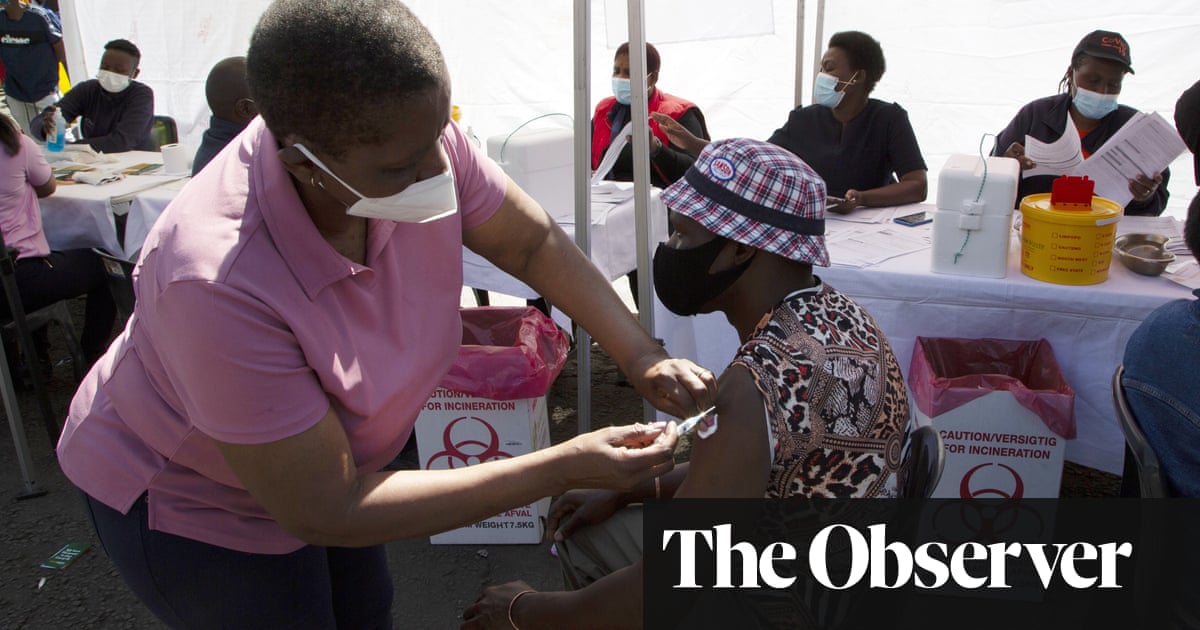
Scientists from Britain are investigating whether lower doses of Covid vaccine can be used in booster programs. This is in the hope that it will increase global supply.
As a means of protecting against the virus, fractional doses have been suggested as a way to ensure that scarce supplies are available in areas where there is shortage.
The idea is being considered by several members of the Joint Committee on Vaccination and Immunisation, which advises UK government. In times of shortage, lower doses of vaccines have been used to treat other diseases.
While the JCVI will likely rule out an immediate booster vaccination program for adults, it is still waiting for further research. However, the government is ready to continue with follow-up jabs to those most at risk or in need of an increase in their immunity. This could begin as soon as next month. The number of hospital admissions and deaths due to the virus increased slightly last week. There were approximately 100 deaths per day.
University Hospital Southampton is currently investigating the effects of lower doses of booster jabs. The funding for the trial was provided by the National Institute for Health Research and the government vaccine task force.
These findings, along with data from other studies and trials, will help inform the JCVIs decision about an autumn booster program. Scientists are currently examining side effects and safety of different vaccine doses. It is possible that lower doses of vaccine might boost immunity while decreasing side effects. Different vaccines may behave differently.
Because of the potential for global vaccine supply, some epidemiologists would love to see more studies. To fully vaccine 70% of the world's population, it will take approximately 11 billion doses. Only 3.2 billion jabs were administered at the beginning of July. According to researchers, vaccines will not be available until 2023 in many countries.
Research has been done on fractional doses. Professor Benjamin Cowling, an epidemiologist from the University of Hong Kong, recently argued that lower doses could be a solution to the global shortage of vaccines. However, this topic has not been sufficiently studied and considered. Although some researchers warn that this approach may lead to increased vaccine resistance, it could also be countered by the fact that fewer people are infected.
Professor of medicine and epidemiology at Oxford University David Hunter said that the idea of reducing vaccine doses was used in fighting other diseases. He said that a strategy to increase vaccine supply by giving lower doses of antigens was used when supplies are limited for polio and ebola. It is important to immunise as many people as possible with the same vaccine supply. The important question is whether vaccine efficacy decreases for each person and, if so by how much.
It is possible that booster shots may be administered at a lower dose then the first and second shots. This is being evaluated by several Covid-19 vaccines. National regulators will have to look at the international benefits of increasing the availability of vaccines if a lower dose is found to be effective. This should not lead to vaccine hesitancy or a perception of inferior shots at lower doses.
Professor Danny Altmann, an immunologist from Imperial College London, stated that the global shortage had more to do about distribution than supply. He said that it was possible to investigate dosage amounts.
Like all other things in the last 18 months, vaccine dosing has been built while we fly. There is infinite potential to set-up randomised controlled trials to increase the spread of doses. This was extremely effective in addressing the shortage of yellow fever vaccine doses.
A spokesperson for the Department of Health and Social Care stated that a booster program was being developed for Britain's most vulnerable citizens. Any booster program will be based upon the independent JCVI's final advice. We cannot make any decisions about the requirements of booster jabs until we have received independent advice from JCVI.
The UK is committed supporting the global recovery from the Covid-19 pandemic as well as improving access to vaccines. We will donate 100,000,000 vaccine doses in the next year and support Covax to distribute 1.3 Billion doses to 92 countries.
